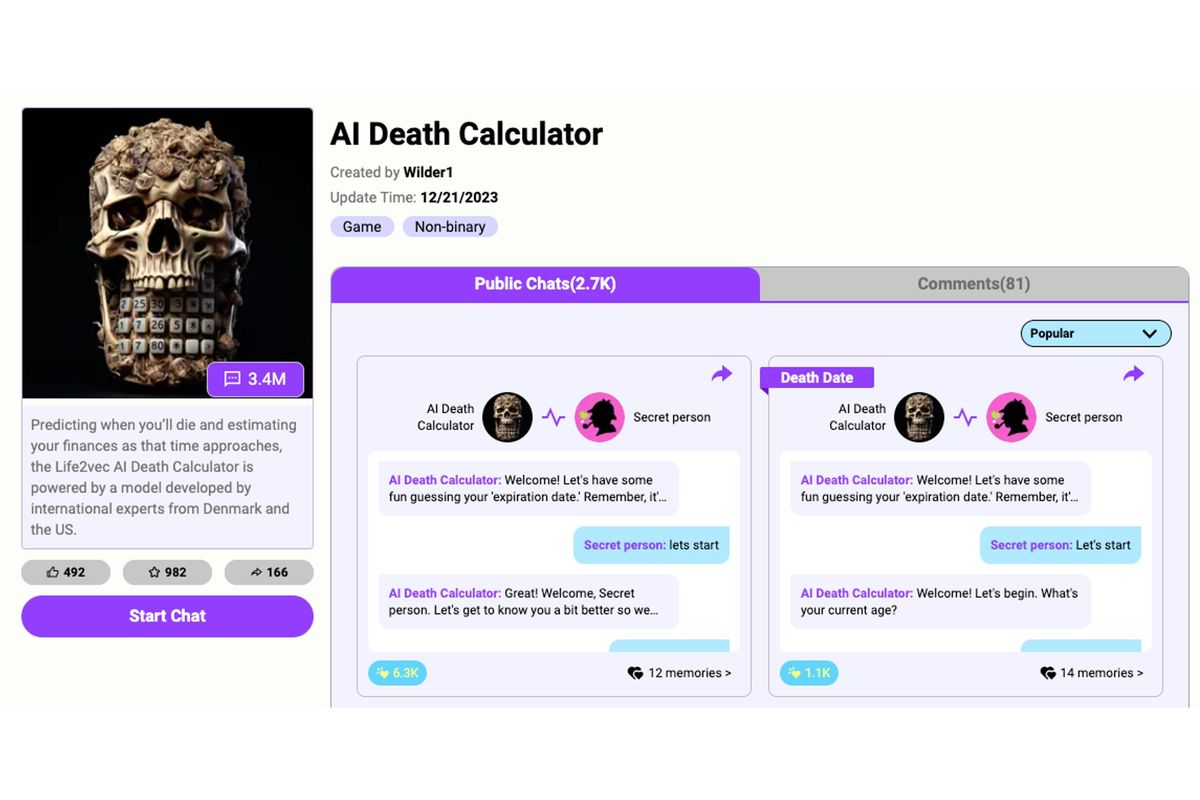Science & Tech
Harriet Brewis
Apr 30, 2024
'AI death calculator' creators issue urgent warning about frighteningly-accurate tool
New York Post / VideoElephant
The one great inevitability of life is that we will all, one day, die (sorry, Bryan Johnson).
However, for most of us, the precise circumstances and time of our passing will never be known.
And yet, US and Danish scientists have now created an AI calculator which can predict a person’s death date with frightening accuracy.
The technology, named life2vec, works by using deep learning models and vast data sets to “examine the evolution and predictability of human lives,” the company states on its website.
“Our model, life2vec, allows us to predict diverse outcomes ranging from early mortality to personality nuances,” it continues, by considering factors including health, education, occupation, income, address and working hours.
The Life2vec team published a paper on their findings in the journal Nature Computational Science in December 2023.
In it, they explained that they analysed a subset of six million Danish people, aged between 35 and 65, specifically because “it is particularly challenging to make survival predictions in this cohort.”
The model was trained on information about the people, gathered between 2008 and 2015, to make its predictions about whether they would likely live for at least four years beyond 1 January, 2016
The researchers then checked these predictions against the subjects' actual outcomes, recorded between 2016 and 2020.
Amazingly, the algorithm’s guesses were 78.8 per cent accurate.
Still, the life2vec team are quick to emphasise that their aim isn’t to satisfy the general public’s morbid curiosities.
Instead, their paper focuses on the factors that can contribute to early mortality, which they identified thanks to their model.
In this way, they hope at-risk individuals might be recommended personalised interventions to help prevent an early demise.
And yet, they note on their website, there are plenty of insidious actors who are trying to capitalise on their technology.

In a statement on the official life2vec page, they stress: “We are aware of social media accounts and at least one fraudulent website claiming to be associated with the life2vec model.
“We are not affiliated with these or any other entities that claim to use our technology.”
They pointed out that much of the coverage about their Nature paper, which went viral following its publication, “misrepresents the model's capabilities”.
These include claims that the model can “predict the time of death, financial status, or health condition,” of the subject.
“Additionally, many sources falsely claim that the model is publicly available online,” they say.
However, it most certainly isn’t.
“The dataset and model contain sensitive data and both are safely stored at Statistics Denmark,” they emphasise.
“They cannot be accessed via the internet.”
So if you visit websites such as “life2vecai.com” or “life2vec.io AI Death Calculator” be warned: their invitations to try the tool “for free” have nothing to do with the legitimate life2vec technology.
Life and death can’t be predicted by the click of a button, and thank God for that, we say.
Sign up for our free Indy100 weekly newsletter
Have your say in our news democracy. Click the upvote icon at the top of the page to help raise this article through the indy100 rankings
Top 100
The Conversation (0)













